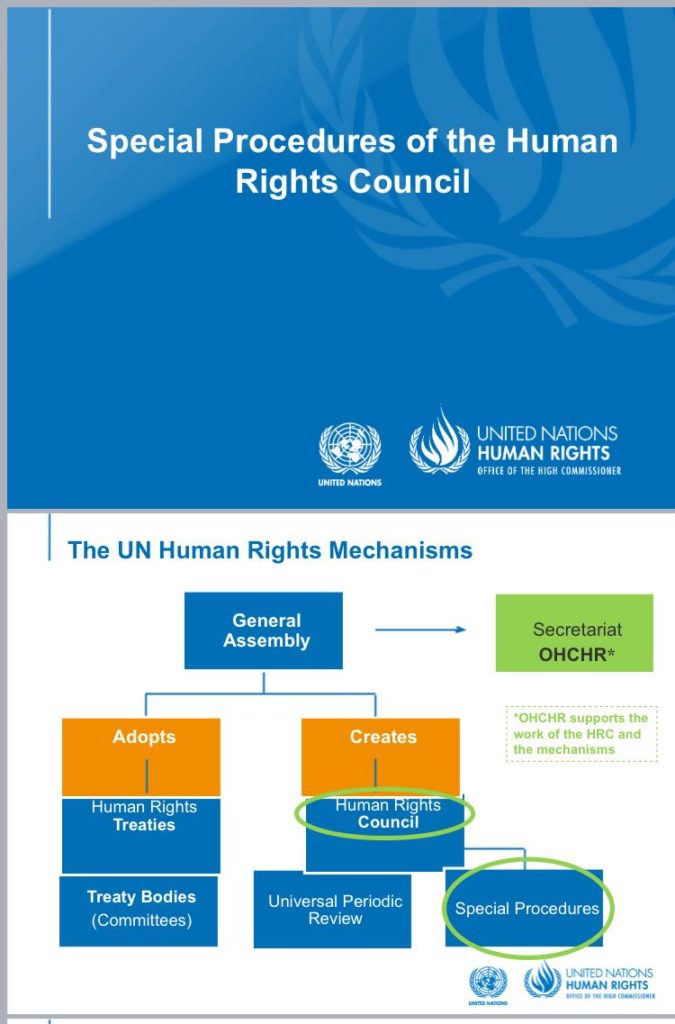On 15th July 2020, SALAM-DHR hosted Serina Hammoud from Office of The High Commissioner for Human Rights (OHCHR)in a webinar session to give a presentation on the function and special procedures of the United Nations Human Rights Bodies.The session attended by 45 human rights defenders from different parts of the world.
The participants were presented with a fascinating talk, in which the speaker explained the processes involved in the work of the OHCHR.
Hammoud stressed that the OHCHR’s mission is promoting and protecting human rights around the world. It does this by appointing Special Rapporteurs (SRs) and through working groups on specific areas of interest who carry out their research and report directly to the United Nations General Assembly.
OHCHR relies on civil society and human rights activists working on the ground to carry out its work and they provide training to NGOs and activists in how to promote human rights within their country. This can then allow OHCHR to send a letter to the governments of different countries under consideration, calling for them to implement certain laws and uphold human rights. She stressed the fact that OHCHR can only operate in a country if they have been accepted in by the government.
Hammoud also made clear the OHCHR’s approach to be one which engages with all political actors involved, from which it can compile its findings and recommendations, which OHCHR calls on national governments to implement in accordance with international law.
The participants were also informed that the OHCHR has 44 thematic mandates and 12 country mandates in total. Sheinformed the audience that SRs hold their positions for a maximum of six years acting within a personal capacity as the role is unpaid.
Hammoud also made clear that key to the OHCHR being able to work effectively is that the information they receive must be factual, clear, updated, non-partisan or politically motivated and not from information exclusively disseminated by mass media. However, she reminded that the work of OHCHR can only happen if they are given freedom of movement and access to all relevant materials in the country of interest, not constrained by government action, preventing them from working.
The participants were also informed that OHCHR operates on a “do no harm principle” where consent of the victim is required.
While OHCHR cannot force a national government to allow them in and the recommendations are entirely non-binding, the work of the OHCHR lends credibility to the work of human rights activists around the world and can build international pressure on governments and political actors to end human rights abuses.
The event was well received with an interesting Q&A session from the participants.


 العربية
العربية Français
Français Deutsch
Deutsch